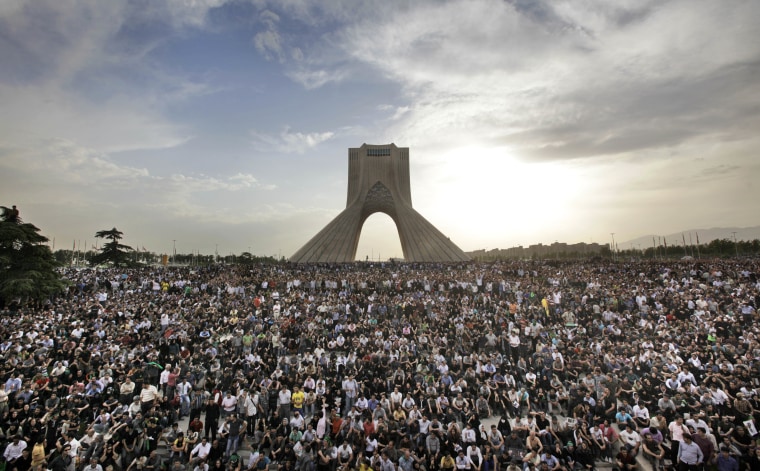After Donald Trump withdrew the United States from the international nuclear agreement with Iran, it was only a matter of time before Iran followed the White House's lead and started walking away from its commitments. It's become painfully obvious in recent days that the time is now.
A week ago, the Associated Press reported that Iran had "broken the limit set on its stockpile of low-enriched uranium ... marking its first major departure from the unraveling agreement a year after the U.S. unilaterally withdrew from the accord." Overnight, the New York Times added this report:
Iran said on Sunday that within hours it would breach the limits on uranium enrichment set four years ago in an accord with the United States and other international powers that was designed to keep Tehran from producing a nuclear weapon.The latest move inches Iran closer to where it was before the accord: on the path to being able to produce an atomic bomb.
It's breathtaking just how spectacular Trump's failure is. He took an international agreement that was working exactly as intended, ignored the pleas of our coalition partners, blew up the policy for no reason, and created a national security threat that was otherwise contained.
We're left with the world's most easily avoidable mess. All Trump had to do was nothing. A comprehensive solution was already in place, having the desired effect. But in a rather literal sense, he couldn't leave well enough alone.
Looking ahead, the American president doesn't seem to have any policy at all, and as Politico noted in a good piece yesterday, the White House "has few options when it comes to curbing Iran from producing a nuclear weapon."
The same article quoted an administration official saying, "Fundamentally, we want them to stay in the deal."
But that's not a posture anyone can, should, or will take seriously. The Trump administration is arguing, in effect, that the United States can ignore the deal with Iran, but Iran should honor it anyway -- just because it'd be our preference.
Indeed, in some ways, it's even worse than that. New White House Press Secretary Stephanie Grisham said in a statement last week, "There is little doubt that even before the deal's existence, Iran was violating its terms."
So let me see if I have this straight. The Trump administration not only wants Iran to honor an agreement the United States has abandoned, it also wanted Iran to meet the obligations of the deal before it existed.
For his part, the Republican president may not have a policy, but he has a pitch, telling reporters two weeks ago that if Iran were willing to forgo a nuclear-weapons program, "they are going to have a wealthy country, they're going to be so happy, and I'm going to be their best friend."
The Republican argument against the Iran deal was that the Obama administration gave up too much: Iran received economic relief and a diplomatic victory, while the United States and our allies received robust inspections on enemy soil and an end to a possible nuclear threat.
A few years later, as Jon Chait recently explained, Trump's posture is incoherent precisely because the Republican wants what he's already given up. The American president wants diplomatic talks with Iran, which would receive economic relief and a diplomatic win, in exchange for inspections and an end to Iran's nuclear weapons program.
Sound familiar?
As Chait concluded, "The notion that Iran would become rich was the chief conservative complaint about the nuclear deal. Now it's Trump's promise."
